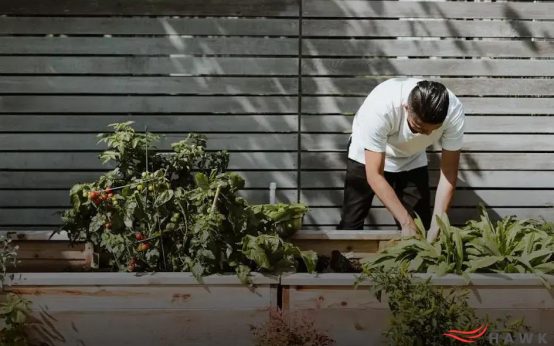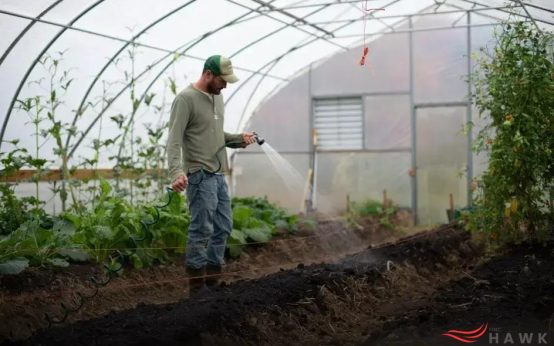Engaging in gardening activities can significantly enhance your mental health and overall well-being. By spending time outdoors and connecting with nature, you can reduce stress and improve your mood. This holistic activity offers various benefits that can transform your mental state. You’ll discover more about the science, the stress-relieving aspects, and practical tips on starting your garden to boost your sense of well-being.
The Science Behind Gardening and Mental Health
Research has shown that gardening can significantly impact mental health. When you dig in the soil and care for plants, your body releases neurotransmitters such as serotonin. These chemicals are known to improve mood and reduce feelings of anxiety and depression. Additionally, gardening provides a form of physical exercise, which is linked to increased releases of endorphins. The sensory engagement in gardening also stimulates cognitive function and can help in maintaining mental sharpness.
Studies have found that being in nature lowers cortisol levels, a hormone associated with stress. This reduction in stress hormones helps in creating a calmer state of mind. Furthermore, the practice of nurturing a living thing can provide a sense of responsibility, purpose, and accomplishment, enhancing one’s self-esteem and overall satisfaction with life.
Moreover, gardening offers a chance to connect with nature, which has its intrinsic benefits. Nature exposure is a natural mood booster and is correlated with a decrease in mental fatigue and negative thought patterns. It enables individuals to disconnect from the digital world, offering a break from typical daily stressors and promoting a meditative state that can lead to improved mental clarity and emotional resilience.
Stress Reduction Through Gardening Activities

Engaging in gardening activities offers a unique and practical method for stress reduction. In today’s fast-paced world, taking time to connect with nature through gardening can provide a calming and therapeutic experience. When you dig, plant, or water, you’re not just tending to a garden; you’re nourishing your mind and body.
Gardening naturally encourages a rhythm and routine, which can be exceptionally grounding and soothing. This repetitive nature of tasks helps lower stress hormones and allows you to practice mindfulness without even realizing it.
The tactile experiences of handling soil, seeds, and plants can enhance sensory stimulation and bring a sense of tranquility. These physical interactions offer a break from mental strain, while also improving hand-eye coordination and motor skills.
Working in a garden provides a chance for gentle exercise, which boosts endorphin levels, often referred to as ‘feel-good’ hormones. This increase in endorphins is a natural way to relieve stress and enhance mood.
Additionally, planning your garden’s layout or selecting plants can foster creativity and offer a sense of accomplishment. By focusing on these engaging activities, individuals often find that their worries fade away, replaced by a sense of purpose and satisfaction.
Moreover, the act of nurturing plants from seed to bloom can foster patience and a deep sense of purpose. There’s something rewarding about watching your efforts grow and transform under your care, which can significantly contribute to mental well-being.
Gardening as a Mindfulness Practice
Gardening offers a unique way to practice mindfulness, engaging both the mind and body in a harmonious rhythm with nature. The act of nurturing plants can foster a deep sense of presence. By focusing on the tasks at hand, such as planting, watering, and pruning, one’s attention shifts away from stress, facilitating mental clarity and peace.
As hands tend to soil, individuals experience a meditative connection, immersing in the moment and leaving daily worries behind. This connection enhances awareness, helping to focus on the present moment rather than dwelling on past or future anxieties.
Additionally, the repetitive motions involved in gardening tasks promote a calming effect, similar to practices like yoga or tai chi. As each seed is planted, there is a tangible expression of care and an opportunity to witness growth and transformation, embodying the core principles of mindfulness.
Engagement with the environment also heightens sensory awareness. Feel the texture of soil, hear the subtle rustling of leaves, and notice the vibrant colors that emerge over time. All these sensory experiences
enhance understanding
of the delicate balance in ecosystems, reinforcing patience and lowering emotional stress levels.
The Benefits of Connecting with Nature

Engaging with nature can have a profound and positive impact on our mental health. Studies have shown that spending time in natural environments can help reduce stress, anxiety, and depression. When we connect with nature, we often experience an increase in feelings of happiness and a sense of calmness. This connection helps in improving our overall well-being by fostering a sense of belonging and purpose.
Nature provides a sanctuary from the hustle and bustle of daily life, and this respite can be incredibly rejuvenating. Exposure to natural light and fresh air encourages the production of serotonin, often called the ‘feel-good’ chemical, which regulates mood and social behavior. Additionally, the sounds of nature, such as birdsong and rustling leaves, can promote relaxation and reduce stress levels.
Gardening, in particular, offers a unique way to connect with nature. The physical aspect of gardening, such as planting and digging, serves as a form of exercise which helps in releasing endorphins—the body’s natural stress relievers. This interaction with the earth also allows individuals to practice mindfulness, focusing on the task at hand, and helping to clear the mind of intrusive thoughts.
Practical Tips for Starting Your Healing Garden
Creating a healing garden can be a transformative and therapeutic experience. Here are some practical tips to get you started on this rewarding journey. First, consider the location of your garden. Find an area with adequate sunlight and easy access to water. The right spot will help your plants thrive and provide you with a comforting place to unwind.
Next, think about the types of plants you wish to grow. Choose varieties that are easy to care for and appealing to your senses. Lavender, rosemary, and chamomile are excellent choices, known for their relaxing scents and healing properties.
Soil quality is crucial for a healthy garden. Add organic matter like compost to enrich the soil and support plant growth. Keep in mind that a well-nurtured garden reflects directly on your well-being.
Don’t forget to include features that enhance the healing ambiance. Consider pathways for easy navigation, seating areas for meditation, or even a small water fountain for soothing sounds. These elements magnify the peaceful atmosphere and enhance your garden’s healing potential.
Integrate a routine that works for you. Regularly spending time in your garden can reduce stress and provide a sense of accomplishment. Whether it’s watering the plants or simply observing their growth, each small task contributes positively to your mental health.
By taking these steps, you’ll begin to cultivate not just a garden, but a sanctuary of well-being that aids in healing and mental rejuvenation.





